Medical articles
What`s the role of antibiotics in treating infections?
 Antibiotics are a cornerstone of modern medicine, playing a critical role in treating bacterial infections. Understanding how these medications work and their proper usage is essential for both healthcare providers and patients alike.
How Do Antibiotics Work Against Germs?
Antibiotics function by targeting specific mechanisms within bacteria that are crucial... read more...
Antibiotics are a cornerstone of modern medicine, playing a critical role in treating bacterial infections. Understanding how these medications work and their proper usage is essential for both healthcare providers and patients alike.
How Do Antibiotics Work Against Germs?
Antibiotics function by targeting specific mechanisms within bacteria that are crucial... read more...
What Is Bronchitis? Symptoms & Treatment
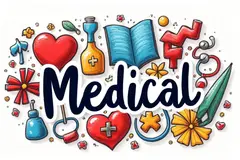 Bronchitis is a common respiratory illness characterized by inflammation of the bronchial tubes that carry air to and from the lungs. This inflammation leads to swelling, increased mucus production, and coughing. Understanding the symptoms and treatment options for bronchitis can help you manage this condition effectively.
Understanding Bronchitis... read more...
Bronchitis is a common respiratory illness characterized by inflammation of the bronchial tubes that carry air to and from the lungs. This inflammation leads to swelling, increased mucus production, and coughing. Understanding the symptoms and treatment options for bronchitis can help you manage this condition effectively.
Understanding Bronchitis... read more...
Does honey boost immunity?
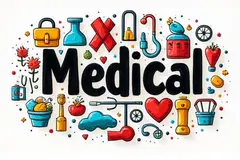 Can Honey Boost Your Immune System?
Honey has been a staple in traditional medicine for centuries, with its sweet and sticky properties often touted as natural remedies. One of the most common claims about honey is that it can boost your immune system. But does this claim hold up to scientific scrutiny? This article delves into the evidence surrounding... read more...
Can Honey Boost Your Immune System?
Honey has been a staple in traditional medicine for centuries, with its sweet and sticky properties often touted as natural remedies. One of the most common claims about honey is that it can boost your immune system. But does this claim hold up to scientific scrutiny? This article delves into the evidence surrounding... read more...
What causes a fever?
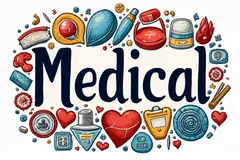 A fever is one of the body's most common responses to an infection or illness. It can be uncomfortable and worrying, but understanding what causes it can help you manage your symptoms more effectively.
What Triggers a Fever?
Fever triggers are often associated with infections caused by bacteria, viruses, fungi, or parasites. However, fever can also result... read more...
A fever is one of the body's most common responses to an infection or illness. It can be uncomfortable and worrying, but understanding what causes it can help you manage your symptoms more effectively.
What Triggers a Fever?
Fever triggers are often associated with infections caused by bacteria, viruses, fungi, or parasites. However, fever can also result... read more...
What is lab tests?
 Understanding Lab Tests: What They Mean
Lab tests are an essential part of healthcare, providing critical information about your health status. These tests can help diagnose illnesses, monitor chronic conditions, and guide treatment decisions. This article aims to demystify the process by explaining what lab tests entail, how to interpret results, and why... read more...
Understanding Lab Tests: What They Mean
Lab tests are an essential part of healthcare, providing critical information about your health status. These tests can help diagnose illnesses, monitor chronic conditions, and guide treatment decisions. This article aims to demystify the process by explaining what lab tests entail, how to interpret results, and why... read more...
What is the role of platelets in blood clotting?
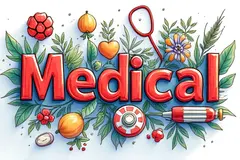 The Crucial Role of Platelets in Blood Vessel Repair: Understanding Clot Formation
Platelets, also known as thrombocytes, are minute cell fragments that play a pivotal role in the body's ability to form blood clots and prevent excessive bleeding. These small cells are crucial for maintaining hemostasis—the process of stopping bleeding—and ensuring proper... read more...
The Crucial Role of Platelets in Blood Vessel Repair: Understanding Clot Formation
Platelets, also known as thrombocytes, are minute cell fragments that play a pivotal role in the body's ability to form blood clots and prevent excessive bleeding. These small cells are crucial for maintaining hemostasis—the process of stopping bleeding—and ensuring proper... read more...
What is a seizure disorder?
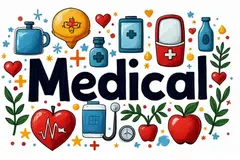 A seizure disorder, commonly known as epilepsy, is a neurological condition characterized by recurrent seizures. These are sudden surges of electrical activity in the brain that disrupt its normal functioning. This article aims to provide a comprehensive understanding of seizure disorders, covering their causes, types, symptoms, and management... read more...
A seizure disorder, commonly known as epilepsy, is a neurological condition characterized by recurrent seizures. These are sudden surges of electrical activity in the brain that disrupt its normal functioning. This article aims to provide a comprehensive understanding of seizure disorders, covering their causes, types, symptoms, and management... read more...
Ulcerative colitis diet?
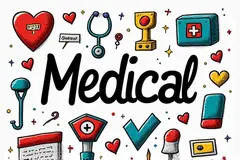 Ulcerative Colitis Diet: Best Practices and Recipes
Managing ulcerative colitis (UC) through diet is a critical aspect of living with this inflammatory bowel disease. A well-planned eating plan can significantly alleviate symptoms, reduce flare-ups, and improve overall quality of life for UC patients. This article delves into the best dietary practices,... read more...
Ulcerative Colitis Diet: Best Practices and Recipes
Managing ulcerative colitis (UC) through diet is a critical aspect of living with this inflammatory bowel disease. A well-planned eating plan can significantly alleviate symptoms, reduce flare-ups, and improve overall quality of life for UC patients. This article delves into the best dietary practices,... read more...
Explain the concept of CRISPR-Cas9 gene editing
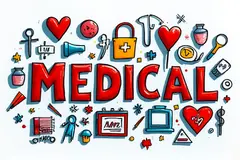 CRISPR-Cas9: The Future of Medicine
The CRISPR-Cas9 gene editing technology is revolutionizing the field of genetics and medicine. This cutting-edge biotechnology has the potential to cure genetic disorders, improve crop yields, and even combat infectious diseases. As we dive into the world of CRISPR-Cas9, it's clear that this breakthrough promises a future... read more...
CRISPR-Cas9: The Future of Medicine
The CRISPR-Cas9 gene editing technology is revolutionizing the field of genetics and medicine. This cutting-edge biotechnology has the potential to cure genetic disorders, improve crop yields, and even combat infectious diseases. As we dive into the world of CRISPR-Cas9, it's clear that this breakthrough promises a future... read more...
What are signs of dehydration in infants?
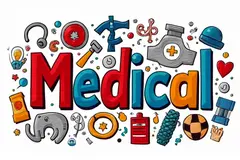 Signs of Dehydration in Babies
Babies are particularly vulnerable to dehydration due to their small body size and rapid fluid loss through sweating or diarrhea. Understanding the early signs can help parents take prompt action to prevent further complications. Common signs include:
Dry mouth and tongue
Decreased urine output (fewer than 6 wet diapers per... read more...
Signs of Dehydration in Babies
Babies are particularly vulnerable to dehydration due to their small body size and rapid fluid loss through sweating or diarrhea. Understanding the early signs can help parents take prompt action to prevent further complications. Common signs include:
Dry mouth and tongue
Decreased urine output (fewer than 6 wet diapers per... read more...
What causes a urinary tract infection (UTI)?
 A urinary tract infection (UTI) can be a painful and uncomfortable experience, affecting millions of people each year. Understanding the causes of UTIs is crucial for prevention and early treatment. This article delves into the triggers, risk factors, and scientific mechanisms behind these common infections.
What Causes UTIs? The Top Triggers Explained
The... read more...
A urinary tract infection (UTI) can be a painful and uncomfortable experience, affecting millions of people each year. Understanding the causes of UTIs is crucial for prevention and early treatment. This article delves into the triggers, risk factors, and scientific mechanisms behind these common infections.
What Causes UTIs? The Top Triggers Explained
The... read more...
Can a ketogenic diet help with weight loss?
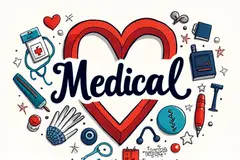 Does Keto Diet Boost Weight Loss?
The ketogenic diet, or keto for short, has gained immense popularity in recent years as a powerful tool for weight loss. This high-fat, low-carbohydrate dietary approach forces the body to enter a metabolic state known as ketosis, where it burns fat rather than glucose for energy.
Can Ketogenic Diet Help Lose Weight?
The... read more...
Does Keto Diet Boost Weight Loss?
The ketogenic diet, or keto for short, has gained immense popularity in recent years as a powerful tool for weight loss. This high-fat, low-carbohydrate dietary approach forces the body to enter a metabolic state known as ketosis, where it burns fat rather than glucose for energy.
Can Ketogenic Diet Help Lose Weight?
The... read more...